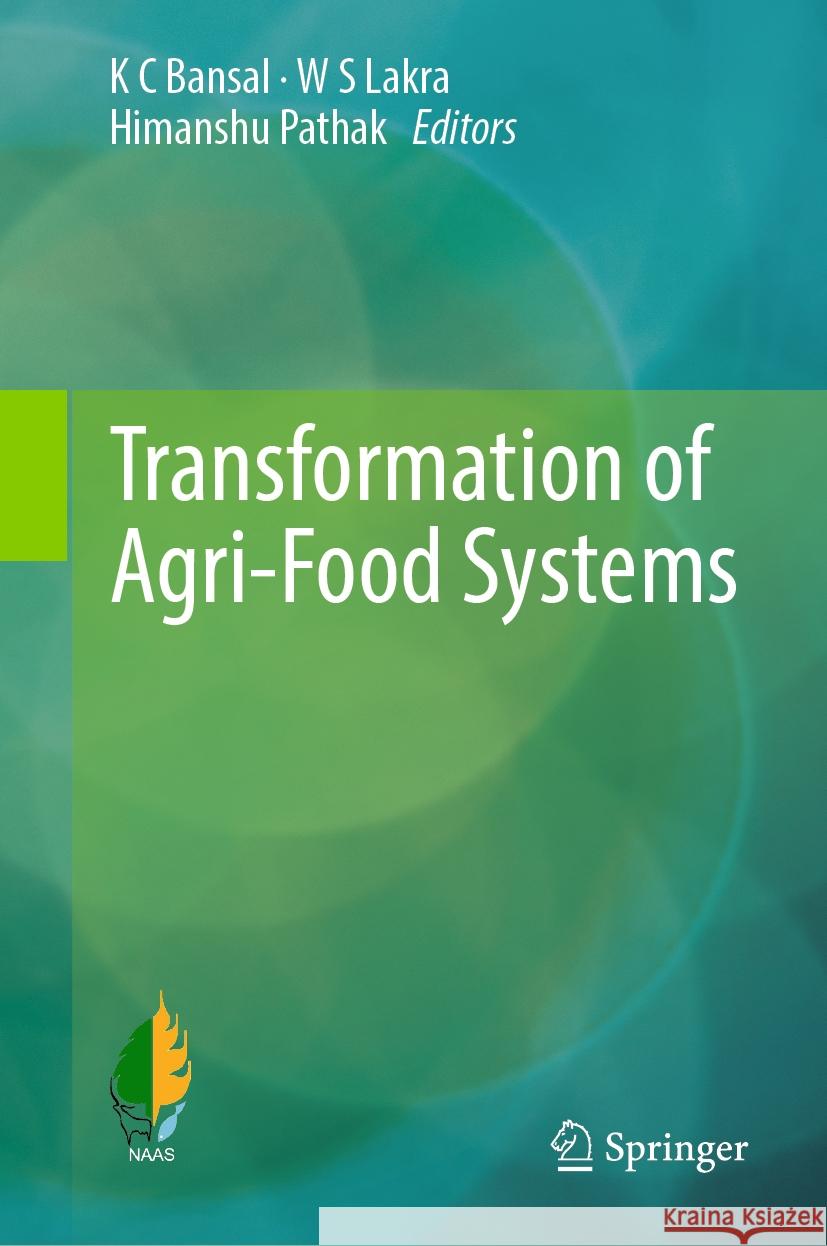Transformation of Agri-Food Systems » książka



Transformation of Agri-Food Systems
ISBN-13: 9789819980130 / Angielski
Transformation of Agri-Food Systems
ISBN-13: 9789819980130 / Angielski
(netto: 766,76 VAT: 5%)
Najniższa cena z 30 dni: 693,97
ok. 16-18 dni roboczych.
Darmowa dostawa!
attached
Prof. K C Bansal is Secretary, National Academy of Agricultural Sciences, and former Professor of Plant Biotechnology, IARI and Director, National Bureau of Plant Genetic Resources (ICAR), New Delhi. He served as Vice-Chair (Asia), Commission on Genetic Resources for Food and Agriculture, United Nations (2013-15). Currently, he is on the Board of Directors of the Global Plant Council, and Board of Trustees of MS Swaminathan Research Foundation. He has 40 years of research experience, and played a leadership role in research management, human resources development and policy making in the area of plant genome engineering in India. His unprecedented initiative to evaluate the entire wheat germplasm (~22000 accessions) conserved in the Indian National Genebank was recognized by Limca Book of Records. He is Rafi Ahmed Kidwai awardee of ICAR and Haryana Vigyan Ratna awardee of the State of Haryana, and is Fellow of National Academy of Agricultural Sciences, and National Academy of Science, India.
Dr W S Lakra is Secretary, National Academy of Agricultural Sciences. After graduating from University of Delhi, he obtained his Ph.D. and D.SC degree from HNB Garhwal University, U.K. and Post-doc research and training from CSIRO, Australia and Harvard University, USA. Dr Lakra has over 40 years of experience in fisheries research and education including Director of ICAR’s National Bureau of Fish Genetic Resources, Lucknow and Central Institute of Fisheries Education Mumbai. He has been an external expert for the WorldFish Centre, Malayasia and FAO besides invited Speaker to national and internal conferences. His area of expertise includes aquatic biodiversity management, aquaculture, genetics and biotechnology. He has guided 29 Ph.D. students, published over 350 research papers and authored several books in the field of aquaculture and fisheries. He is a Fellow of National Academy of Agricultural Sciences and National Academy of Sciences.
Dr. Himanshu Pathak is the Secretary, Department of Agricultural Research and Education, Govt. of India & Director General, Indian Council of Agricultural Research, New Delhi. He provides leadership to one of the largest agricultural research and development organizations of the world. Earlier he served as Director of ICAR-National Rice Research Institute, Odisha and Director of ICAR-National Institute of Abiotic Stress Management, Maharashtra, India. He has over three decades of experience in the areas of agricultural research, education and extension. He has published about 250 research papers with h-index 76, i10-index 238 with more than 22,700 citations. He is a fellow of Indian National Science Academy; National Academy of Science, India; National Academy of Agricultural Sciences and Humboldt Foundation and also Rafi Ahmed Kidwai Awardee of Indian Council of Agricultural Research. He is the President of National Academy of Agricultural Sciences.
1997-2026 DolnySlask.com Agencja Internetowa
KrainaKsiazek.PL - Księgarnia Internetowa









